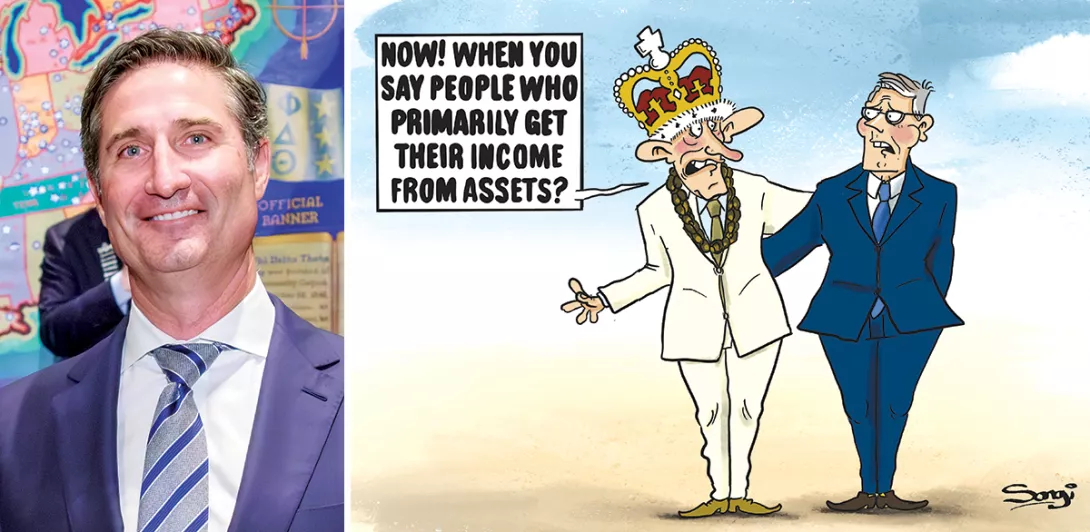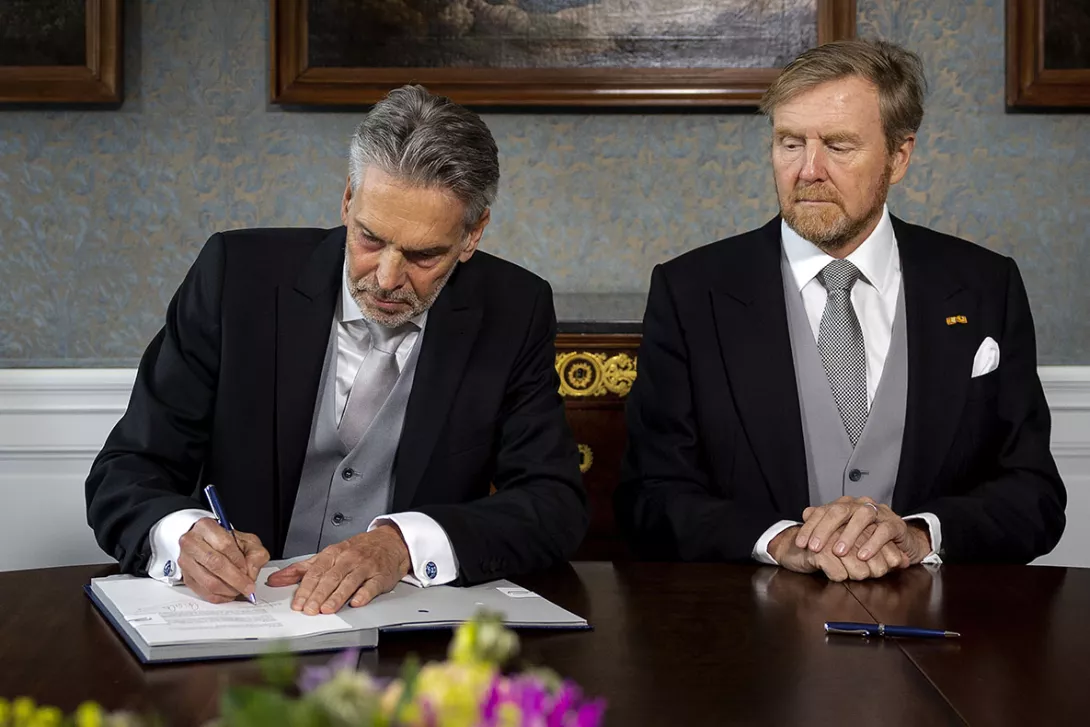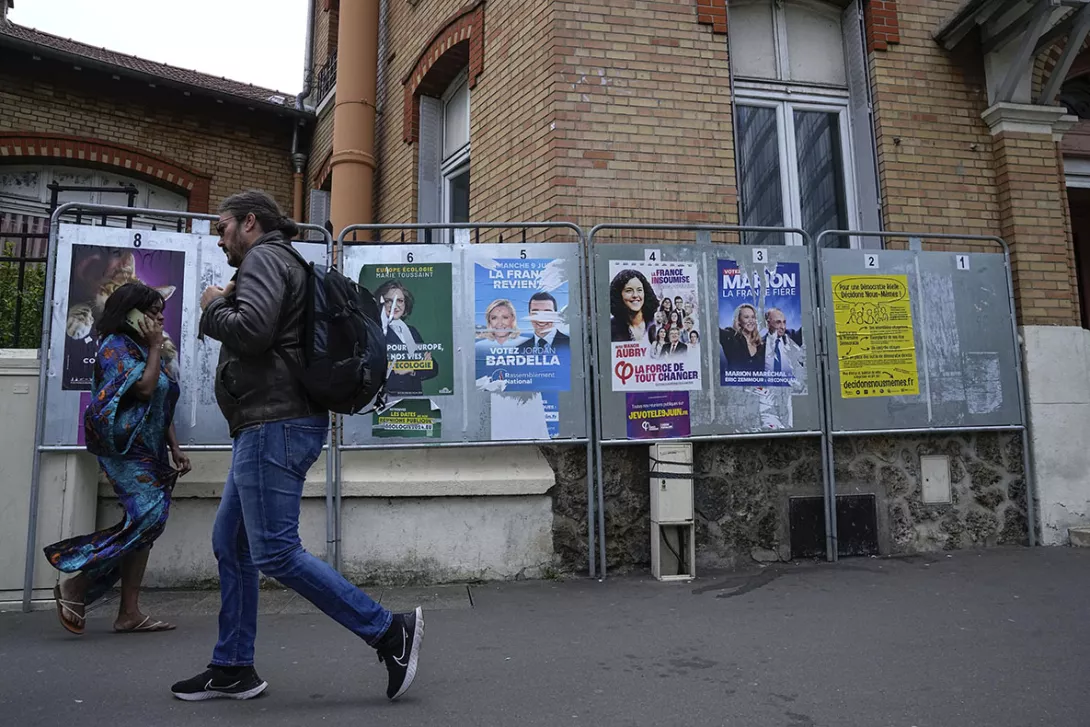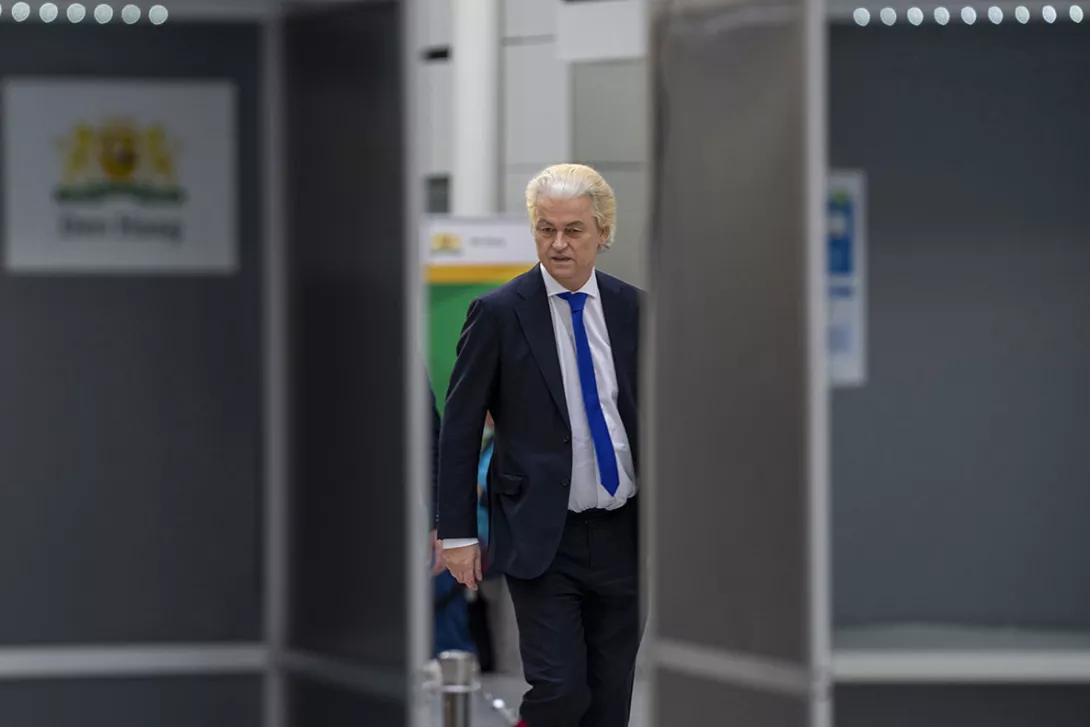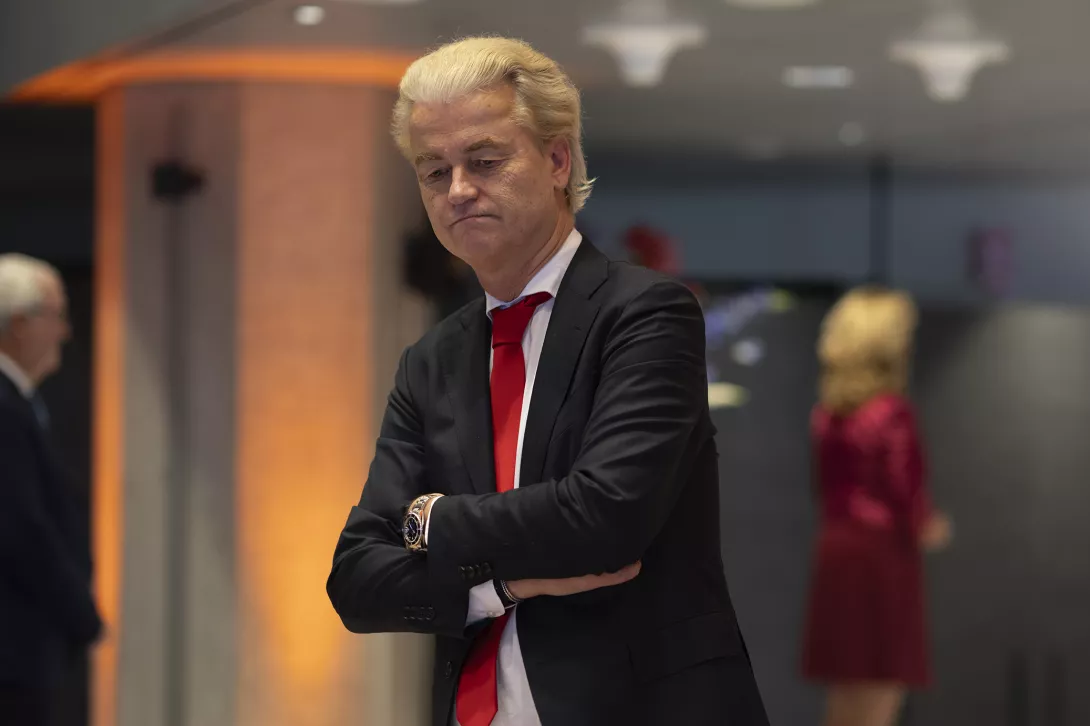
SNAP elections in the Netherlands on November 22 saw big gains for the anti-Muslim far-right Freedom Party (PVV), led by Geert Wilders, now the biggest party in the parliament.
Out of a 150-member parliament, PVV won 37 seats (up from 17), with almost one in four people voting in the party. In the context of the Netherlands’ very fragmented political landscape, with 17 parties in the parliament, this amounts to an enormous win.
Coming second was the coalition of the Labour Party and the Green Left Party (PvdA/GL) with 25 seats, led by ex-European commissioner Frans Timmermans. Separately, the two parties had nine and eight seats before the elections, so together they gained eight seats.
Third was the conservative People’s Party for Freedom and Democracy (VVD) with 24 seats, down from 34. The New Social Contract Party (NSC) came in fourth with 20 seats, a new conservative party led by a former member of the Christian Democratic CDA, Peter Omtzigt, who came into conflict with his party.
The three parties to the left of the PvdA/GL all lost. The Socialist Party (SP) went from nine to five seats; the Party for the Animals (PvdD), a party that focuses on animal rights and ecology but has a broadly left-wing programme, went from six to three. And BIJ1 (“Together”), the most principled anti-racist and anti-colonial party, lost its only seat. BIJ1 lost its seat after its popular leader and lone MP, Sylvana Simons, announced her retirement due to health reasons, and internal tensions over political perspectives led to resignations.
The VVD has been the biggest party in parliament and has led conservative coalition governments for the last 13 years. Under the prime-ministership of VVD-leader Mark Rutte, there have been four coalitions that systematically cut social services, introduced market reforms in healthcare and education, undermined job security, undercut social housing and raised the retirement age for pensions. The Netherlands is the country with the greatest number of “flexible” jobs in the European Union.
The conditions produced by these policies has led to much anxiety and anger and also distrust in bourgeois institutions. This distrust was amplified by the fact that there have been a couple of scandals like the childcare benefits scandal in which people who had claimed benefits were falsely accused of fraud by the tax authorities and had to pay back allowances which led to extreme financial hardship for thousands upon thousands of people.
Left-wing parties have not been able to build on the anger and come up with an appealing alternative. Worse, those major parties that present themselves as being on the left — the PvdA and Green Left — have in fact been complicit in implementing these neoliberal policies.
From 2012 to 2017, the PvdA was part of the second VVD-led coalition (Rutte II) that was not only responsible for the biggest attack on social gains in Holland ever, but also for the new legislation that led to the childcare benefits scandal. The Green Left party, although never part of any VVD-led government, supported Rutte at several critical moments when they needed to get a majority to push neoliberal reforms through parliament.
For some time, it looked like the Socialist Party could offer a combative alternative for voters who were disappointed with Labour and Green Left.
When the right-wing shift of the PvdA started in the 1990s and it formed its first neoliberal coalition with the VVD and D66 (another pro-business party), the SP was able to win more and more votes from people who were dissatisfied with neoliberal politics and the right-wing shift by the PvdA. The party peaked in 2006 with 25 seats.
But it has not been able to expand on this. The main reason for this is that the party changed from a combative opposition party into a party that is focused on forming a coalition with the centre parties. It has not been trying to build a movement outside of parliament that can change the balance of forces but it rather has been trying to make itself look like a potential coalition partner for the centrist parties that can be relied upon by the ruling class not to shake up the status quo too much. Therefore, it has limited itself more and more to parliamentary politics and dropped several of its earlier radical demands, like the demand to break with Nato.
This has led to a situation in which the left in general is not trusted by large parts of the electorate to implement an alternative to neoliberal politics. And it has opened space for far-right parties to scapegoat migrants, Muslims and refugees while at the same time agitating against “the elite.”
This scapegoating has had a big impact in Dutch society, also because parties of the so-called centre, and even to some extent the Socialist Party, went along with a lot of the toxic racist narratives.
The last VVD-led coalition collapsed earlier in 2023 over internal disagreements on policies regarding reuniting families of refugees. This break was forced by the VVD. It had calculated that in new elections in which it would agitate for limiting the number of refugees, it would win a bigger lead over the other parties.
The anxiety about refugees that is already strong in Dutch society got an extra boost in 2022 because of a crisis in the accommodation for asylum-seekers which led to many people sleeping outside of the centres in tents. Although this was a crisis fabricated by earlier Rutte governments that cut the subsidies for the accommodation, the right-wing parties, together with a lot of the media, succeeded in creating a sense of crisis about refugees.
But the calculation of the VVD blew up in its face. Dilan Yesilgoz, who succeeded Rutte as leader of the VVD (and who herself is a child of political refugees), stirred up the anti-refugee sentiments during the campaign and presented herself as being to the right of former PM Rutte on matters of asylum, migration, and law and order.
Instead of winning votes, this stance led to the VVD losing many votes and seats to Wilders’s PVV. The VVD was now basically campaigning in support of the core stances of the PVV. As some commentators in the Dutch press have said, if people have a choice between the real thing and a copy, they prefer the real thing.
Whether the PVV is able to form a coalition remains to be seen. It needs the support of the VVD and Omtzigt’s NSC to get a majority in parliament. The VVD has said it doesn’t want to join the government because it lost so many seats but it will “condone” a Wilders minority government, which means it will make a Wilders government possible through parliamentary support. The NSC seems to be open to starting negotiations with Wilders but the building of a coalition in Holland is often a long process. Last time the process took a record-breaking 298 days.
Whatever the outcome of the negotiations for a new government, it is clear that the racism that is already rampant in Dutch society will be bolstered and that minority groups will be targeted even more. Social movements, trade unions, migrant rights organisations, and left and progressive parties must fight back and defend the rights of migrants, refugees, Muslims and people of colour.
In the days after election day there have been demonstrations in several cities. In Amsterdam thousands of people gathered to protest against Wilders and at the same time call for a permanent ceasefire in Gaza and support for the Palestinians. Wilders is a strong supporter of the settler-colonial state of Israel and has called for the ethnic cleansing of the occupied territories. The genocidal Israeli government had congratulated Wilders and expressed its hopes that Wilders will lead the next government.
This article is republished from peoplesdispatch.org.


